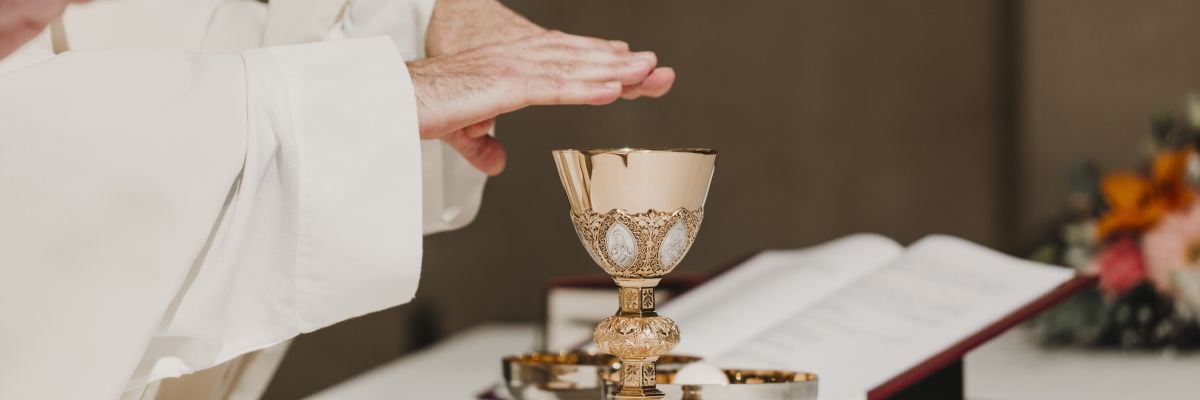
Question:
Answer:
The simplest answer is: because that’s their job. Asking why only priests can consecrate the Eucharist is a little like asking why only congressmen can vote on bills. It is what their function is. Human society requires a division of labor. Within civilization there is no such things a true jack-of-all-trades. Given that human nature requires society (“It is not good for the man to be alone,” Gn 2:18) and that society requires a division of labor, human nature indirectly requires the existence of all sorts of occupations: farmers, rulers, clerks, carpenters, and priests–men who minister in the holy things.
The holy things are the most important things there are, meaning that they, of all things, require a specialist to minister them. Among the holy things are conducting the proper corporate worship of God, the blessing of the people, the teaching of the people, and the pastoral governance of the people–all of which are attributed to both Old Testament priests and New Testament presbyter-priests.
The chief act of corporate worship for a priest is the offering of sacrifices to God on behalf of the people. For the Old Testament priests this was the slain animal offerings; for the New Testament priests it is the offering of the living Christ to his Father as he presents himself to his Father in his heavenly intercession on our behalf as our high priest. If God required specialists to perform even animal sacrifices, how much more will he require specialists to play a role in the living Christ’s offering of himself to his Father!
This is all the more apparent when one considers the Real Presence of Christ in the Eucharist. If any layman could consecrate the elements, Christ would suffer innumerable offenses in the Eucharist. Only someone who has been specially trained and who is specially trustworthy must be allowed to minister in this sacred event.
We can see the disaster that would result if every Christian were able to consecrate the elements if we look at 1 Corinthians 11:20-30. The Corinthians were offending Christ in the Eucharist in such a way some of them were becoming sick and even dying. Given that this is how much God the Father values the Presence of his Son in the Eucharist, how could he possibly allow every Christian, no matter how sinful, improperly educated, heretical, or even mentally unbalanced to consecrate the elements?
Innumerable disasters would result, and there is simply no way God would allow anyone other than a person specially trained in the proper administration of the sacrament to do the consecration.


